On October 24, 1648, the Peace of Westphalia was signed, marking the end of the Thirty Years’ War.
Thirty Years’ End
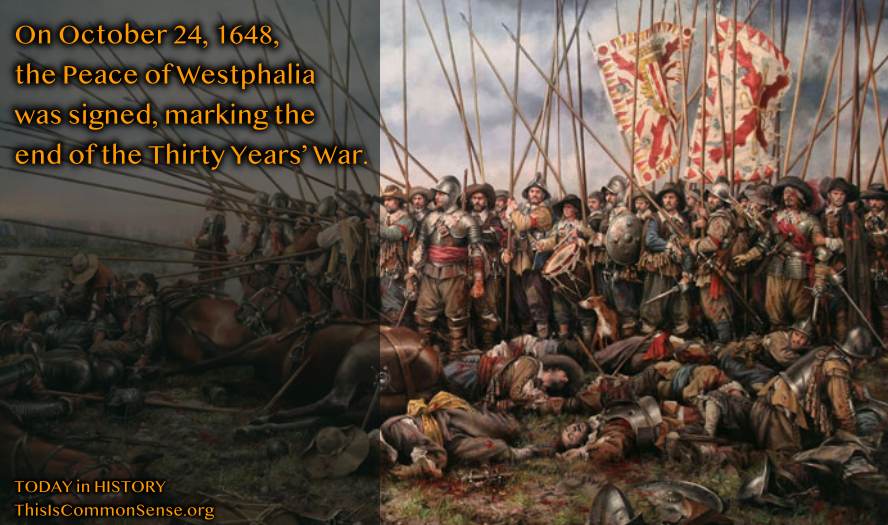

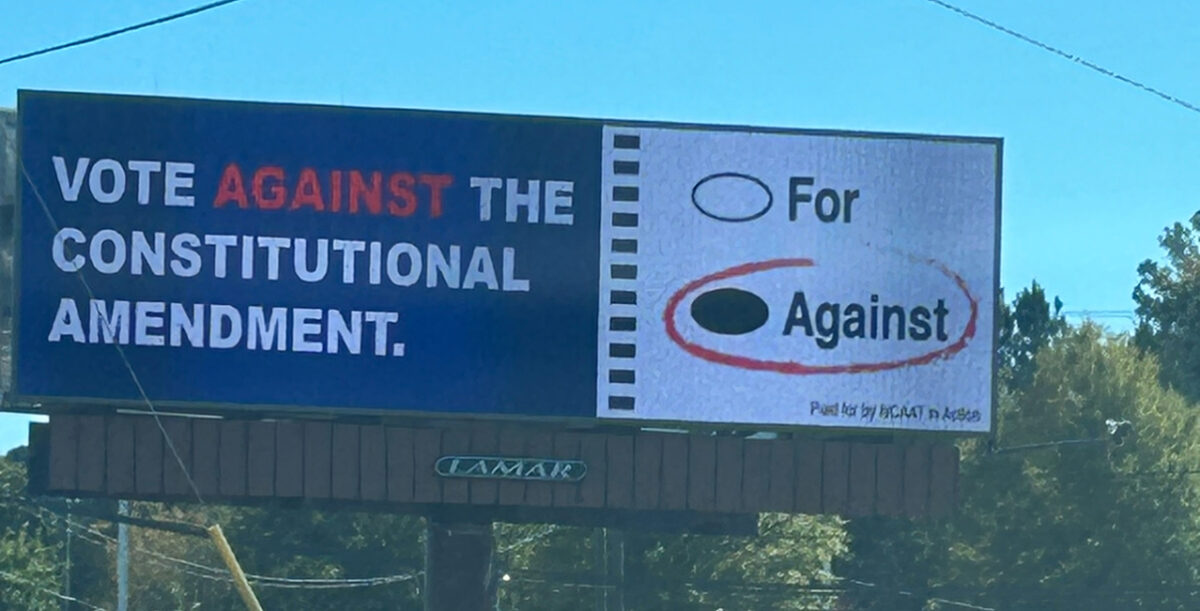
What else do you need to know?
Well, speaking just for myself, I prefer political ads that tell me at least something about an issue or a candidate prior to their exhortation to vote for or against him, her, or it.
Messaging ought to at least suggest why to vote a certain way.
And that’s what stuck out about an electronic billboard in North Carolina, which does absolutely nothing to persuade — zip, zilch, zero to answer the question why.
It simply states, “VOTE AGAINST THE CONSTITUTIONAL AMENDMENT.” Next to those words is a picture of a ballot with the “Against” oval filled in — and circled, too, for good measure.
The instruction is quite clear, but, well, why?
And what the heck is this even about?!
This billboard is paid for by NCAAT in Action — the AAT stands for Asian Americans Together. If one goes to the group’s website, one finds … nada. No information whatsoever about North Carolina’s Citizen Only Voting constitutional amendment, the only amendment on the ballot.*
I harken back to Georgia and the 2021 joint statement by Asian Americans Advancing Justice-Atlanta and the Asian American Advocacy Fund, which seemed to subscribe to the notion that only citizens should vote but still “collectively condemn[ed] the statements made by Georgia’s Secretary of State … emphasizing that ‘only American citizens should vote in our elections in Georgia.’”
Confused? These Democrat front groups don’t make any case at all against the idea of reserving suffrage to citizens. Why? They have no credible argument.
But they still want voters to defeat these measures.
The good news is that they don’t represent the vast majority of Asian Americans, who strongly favor only citizens voting.
This is Common Sense. I’m Paul Jacob.
* In full disclosure, I serve as chairman of Americans for Citizen Voting.
—
See all recent commentary
(simplified and organized)
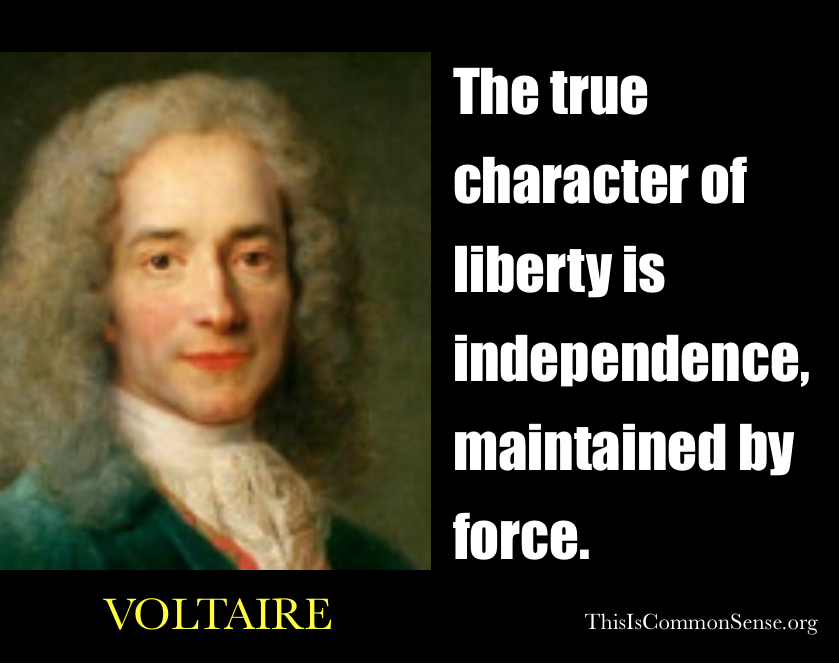
The true character of liberty is independence, maintained by force.

Budapest (10/23/1956) — The Hungarian Uprising begins when a delegation of students enter the building of Magyar Rádió to broadcast their demands for political and economic reforms to civil society, but are detained by security guards.
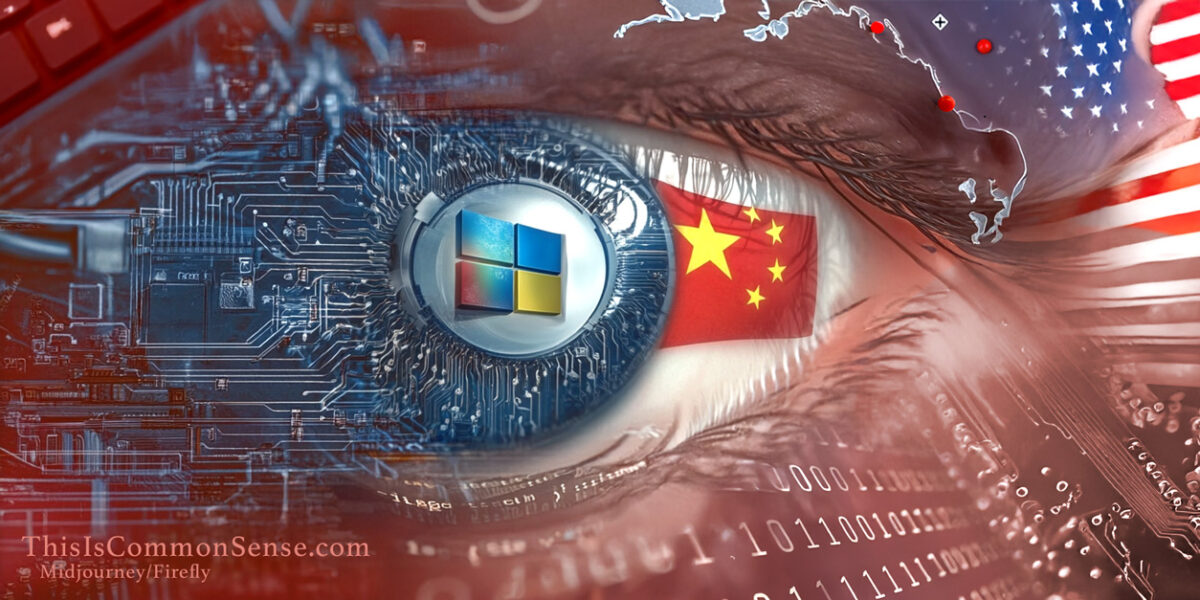
The report comprehensively describes the recent prolific activity of state-affiliated hackers all over the world, primarily those affiliated with China, Iran, North Korea, and Russia.
In the case of China, we have a series of “Typhoon”-named cyberattacks: Raspberry Typhoon, Flax Typhoon, and Granite Typhoon, to name a few, that “have intensively targeted entities associated with IT, military, and government interests around the South China Sea.”
The toll of cyberattacks in the U.S. — all kinds from all sources — has been extensive. In the recent year, “389 healthcare institutions were successfully hit by ransomware,” resulting in closures and medical delays.
The report is also about what we’ve been doing to defend ourselves: not enough. The authors say that although better cybersecurity is important, we also need “government action” that makes it costlier for states to launch these attacks.
We need something else, too. We need companies like Microsoft to abstain from helping adversary states to cyberattack us.
At Breitbart, Lucas Nolan reports that Microsoft has been maintaining close ties with the Chinese Academy of Sciences for over a decade. Among the details of a lengthy indictment, Nolan offers a list of publications coauthored by Microsoft and CAS researchers “in the fields of artificial intelligence, machine learning, data mining, computer vision, and even cybersecurity.”
Why help China gain knowledge that can be used to hurt us?
This is Common Sense. I’m Paul Jacob.
Illustration created with Midjourney and Firefly
—
See all recent commentary
(simplified and organized)
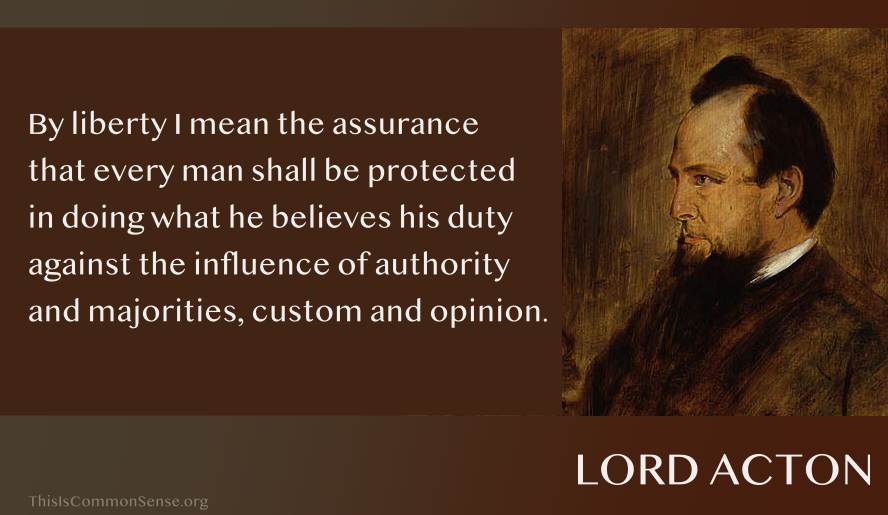
By liberty I mean the assurance that every man shall be protected in doing what he believes his duty against the influence of authority and majorities, custom and opinion.
Lord Acton, The History of Freedom in Antiquity (1877).